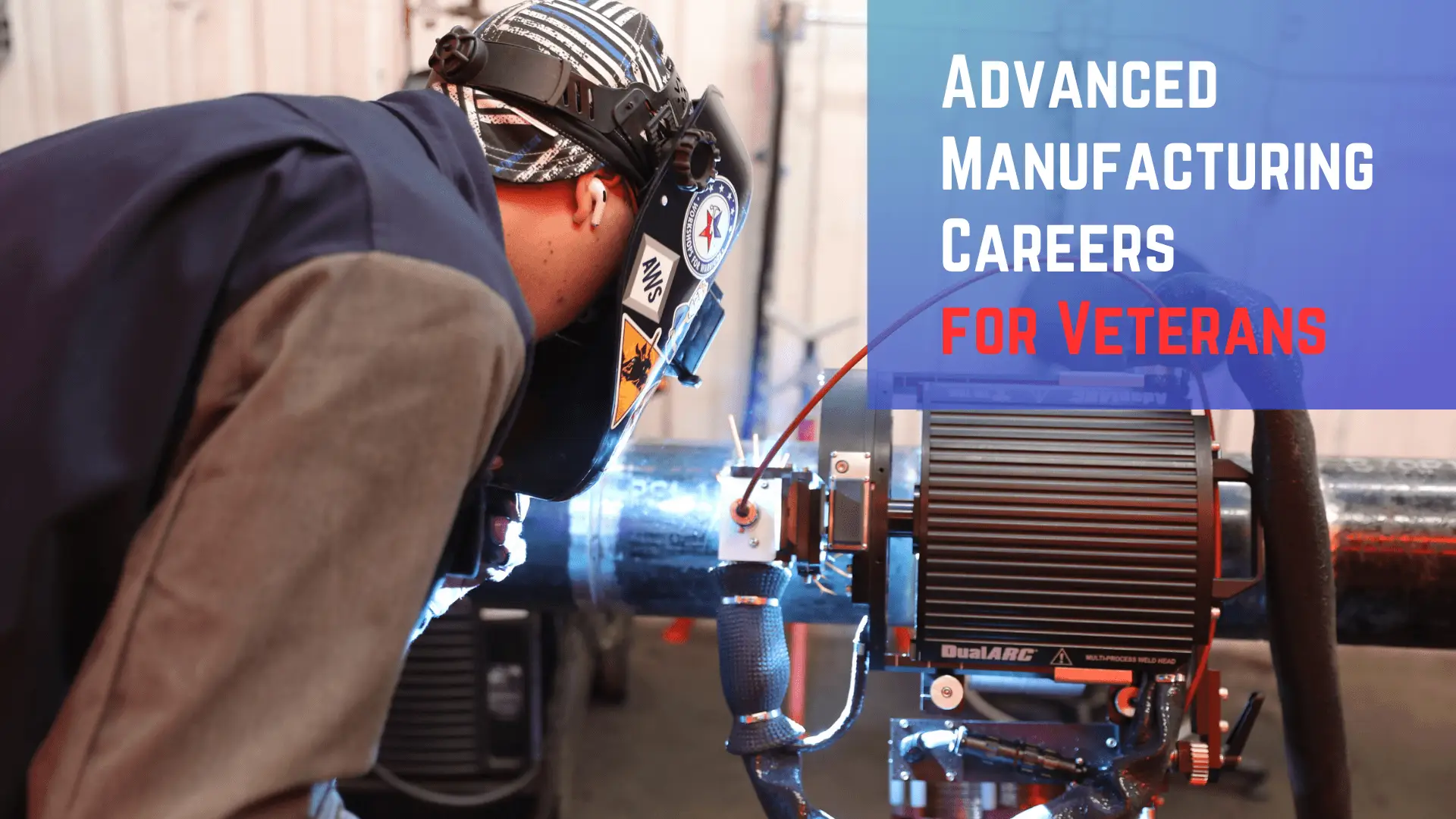8 Reasons Why Veterans Should Consider a Career in Advanced Manufacturing
Transitioning from military service to civilian life is a significant step that demands careful consideration of various career options. For veterans and transitioning service members, the prospect of embarking on a new journey can be both exciting and daunting. One avenue that holds immense promise and aligns well with the skills gained in the military is a career in advanced manufacturing. The United States’ advanced manufacturing sector offers a wealth of opportunities, innovation, and a chance to make a lasting impact. In this blog post, we’ll explore why advanced manufacturing is a fantastic option for veterans, highlighting the transferable skills, growth potential, and meaningful contributions that this field can offer. Here are eight reasons why veterans should consider a career in advanced manufacturing.
1. Parallels between Military Skills and Advanced Manufacturing
One of the key reasons why veterans should consider a career in advanced manufacturing is the alignment of skills and attributes gained during military service with the demands of the industry. The military emphasizes discipline, teamwork, adaptability, problem-solving, and precision – qualities that directly translate to success in the innovative and precision-based field of advanced manufacturing. Just as the military relies on collaboration to achieve objectives, advanced manufacturing relies on coordinated efforts to develop, produce, and deliver cutting-edge products.
2. Leveraging Technical and Engineering Skills
Veterans often possess technical and engineering skills acquired during their service. These skills can be seamlessly applied in the advanced manufacturing sector, where intricate processes and machinery require a deep understanding of technology. Whether it’s operating complex machinery or tools, troubleshooting technical issues, or maintaining precise quality control standards, veterans bring a unique blend of technical expertise and hands-on experience to the table.
3. Continuous Learning and Skill Development
Similar to many jobs in the military, where learning is a constant and ongoing process, advanced manufacturing demands a commitment to learning. Veterans are accustomed to adapting to new technologies and evolving environments, which positions them well to thrive in the ever-changing landscape of advanced manufacturing. Whether it’s acquiring new programming skills for automation or staying updated with the latest industry trends, veterans can harness their learning mindset to excel in this field.
4. Meaningful Contributions to Innovation
Advanced manufacturing is at the forefront of technological innovation. Veterans who enter this field can contribute to groundbreaking advancements that can shape industries, improve lives, and enhance national security. By leveraging their problem-solving skills and strategic thinking, military veterans and transitioning service members can actively participate in designing and creating products that address societal challenges and promote progress.
5. High Demand for Skilled Workforce
The advanced manufacturing sector is experiencing a growing demand for skilled workers. According to the National Association of Manufacturers, 2.1 million manufacturing jobs will be unfilled by 2030. This makes advanced manufacturing an ideal career path for veterans seeking stability and long-term prospects. As technology continues to reshape industries, the need for individuals with hands-on skills, critical thinking, and technical acumen becomes even more pronounced. Veterans entering advanced manufacturing can find a range of job opportunities across diverse industries such as aerospace, automotive, electronics, and healthcare.
6. Competitive Compensation and Benefits
Aside from the intrinsic rewards of contributing to innovation, veterans pursuing careers in advanced manufacturing can also enjoy competitive compensation and benefits. Skilled positions in this sector often command attractive salaries and comprehensive benefits packages, providing veterans with financial stability and a secure future for themselves and their families.
7. Seamless Transition and Supportive Community
Transitioning from the military to a civilian career can be a challenging process. Organizations and training programs like Workshops for Warriors offer a way to ease the transition for those who have served our nation. In fact, 94 percent of veterans who are trained at Workshops for Warriors arehired into advanced manufacturing careers after an intensive four-month program with no out-of-pocket expenses to students. Additionally, many companies within the industry actively recruit veterans and provide tailored training programs to bridge any knowledge gaps. Veterans can find camaraderie and a sense of purpose in working alongside like-minded individuals who value dedication, discipline, and precision.
8. Opportunities for Leadership and Advancement
In the military, leadership skills are nurtured and refined. Veterans bring these leadership attributes into advanced manufacturing, where they can quickly rise through the ranks and assume roles of increasing responsibility. Whether it’s leading a production team, managing quality control processes, or overseeing project timelines, veterans have the chance to showcase their leadership abilities and make a lasting impact on their teams and organizations.
For veterans and transitioning service members seeking a fulfilling and impactful civilian career, a path in advanced manufacturing is a compelling option. The skills, values, and experiences gained in the military align seamlessly with the demands of this innovative sector. From technical expertise to leadership acumen, veterans have the potential to excel in advanced manufacturing, contribute to technological advancements, and secure a prosperous future for themselves and their families. Veterans should consider a career in advanced manufacturing; they stand poised to play a pivotal role in shaping the future of the industry in America.

